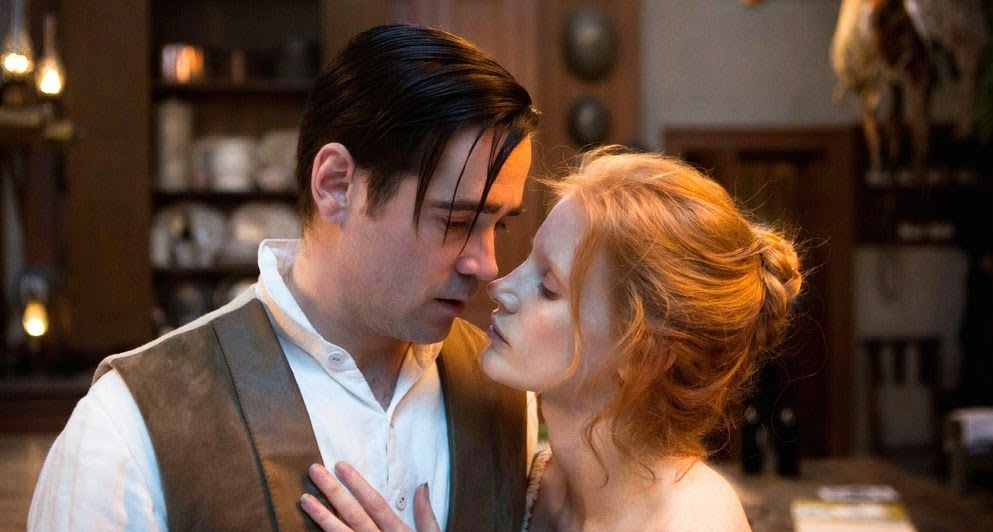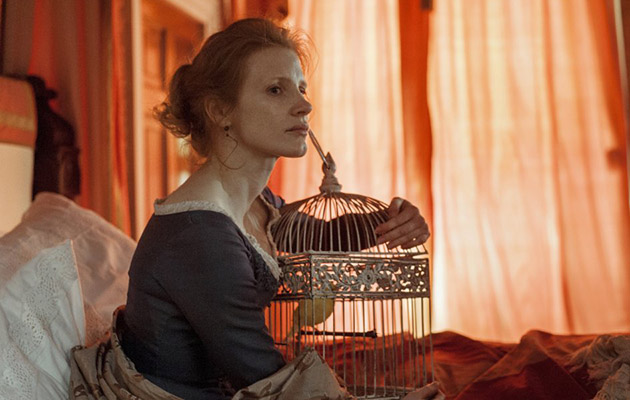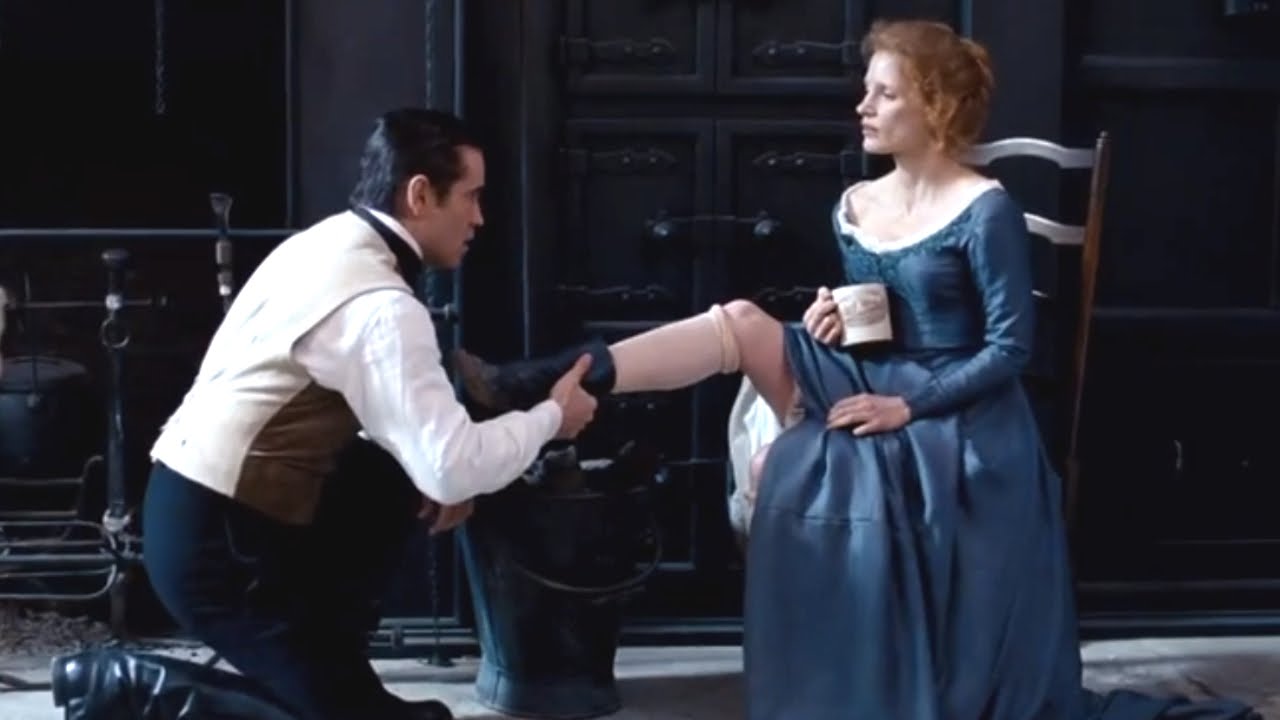
Few likely need an introduction to Liv Ullmann, at least not a proper one anyway. Yes, she was arguably Ingmar Bergman’s definitive muse. Yes, she’s been in the cinema since 1959. And yes, she has managed to continue working, both as a performer and director, despite the ever-evolving nature of her industry. She has remained relevant, and I discovered why upon talking to her at this year’s Toronto International Film Festival: she’s genuine. Over the years, this job has granted me the opportunity to speak to many artists. Some are assholes, some are thoughtful, and some are gifted enough to play the role of the thoughtful interviewee. Ullmann is none of the above. She is herself, fully and completely. Her answers come from the heart, and when she speaks you see someone who has lived a full and fascinating life, and yet still has the appetite to continue living and creating. After the success of Miss Julie, I suspect she’ll be doing plenty of both in the years to come.
Samuel Fragoso: Your movie was quite good.
Liv Ullmann: Why you say quite? It was so-so?
Fragoso: No, quite meaning I enjoyed it.
Ullmann: (Laughs.) I thought when you say ‘It’s quite good’ you’re really saying that it’s ‘Kinda good.’
Fragoso: I don’t think quite is a quantifier. It just means that it’s good. Not a masterpiece, but good.
Ullmann: Ah, okay.
Fragoso: Your career really jumpstarted on the stage playing Nora in Henrik Ibsen’s A Doll House.
Ullmann: It was the first thing I ever did in the United States on the stage. And so I appeared on the cover of Newsweek, which was the great.
Fragoso: How much of your work and industry has changed since that play in the 1960s?
Ullmann: Everything has. Because I have changed too. So the way I look at the world is different from when I looked at it in the mid-1950s. But the world has changed even without me looking at it being a changed person myself. It’s somewhat terrifying now, and it was terrifying then too because of wars and the atomic bomb and such. But it’s terrifying now because it’s all so … disconnected. There is so little connection between people. For me, that is terrifying. When people are sitting like that guy there [she points at a man with his face in his phone] all the time and looking at this [she pulls out her phone].
Fragoso: It’s terrifying isn’t it?
Ullmann: To me it is terrifying when I watch TV and on the air it says, ‘Do you want to chat about this? Let’s chat about this.’ So while they’re watching something they also go somewhere to chat about what they’re watching. There’s no connection. And since I don’t even do this, and that is my choice, that terrifies me more. Sooner or later I will be excluded, because I don’t do that. And that’s the only way you can connect with people.
Fragoso: It’s not the only way. But yes, we live in an age, and I admit to being a byproduct of this age, where people predominantly connect through technology. Face-to-face interaction is scarce.

Ullmann: I find it unsettling because I don’t know where it will end, and I do feel, yes, if you don’t do this you will be with no connection at all. And then one day even you guys, who connect through this (raises the phone again), will feel some kind of despair. Because where is it taking you?
Fragoso: It’s taking us to an uncertain, and probably bad, place. Do you think people can still connect to movies?
Ullmann: And that is my whole thing. People can connect in movies, the orchestra, ballet, when writers are truthful from their heart and soul. There are few places where people can connect. But very much through movies, yes, because people are still in a dark room or maybe even on DVD. At least in movies you can still hear the truth.
Fragoso: But even in theaters you see people on their brightly lit phones.
Ullmann: So they won’t be able to. They’re taking that experience away from themselves. But you can still allow it, instead of listening to lies—the news and politicians.
Fragoso: Hasn’t that always been the case with Washington? You were around in the Nixon era. Politicians lie. It comes with the job description.
Ullmann: But not to the degree they do now.
Fragoso: Or is just more apparent now?
Ullmann: Okay of course, because there’s more of it.
Fragoso: You think we’ve become worse as people?
Ullmann: We’re not so kind. I never knew that everything was Obama’s fault. If I listen to most people on TV now, whatever is happening when I’m here in the United States everything is Obama, or somebody’s fault. But it’s the never the fault of the people who may be doing the fault. And there’s always explanations and we can never listen to a discussion. Then comes twenty new programs about what that discussion was about.
Fragoso: Did you used to find people more reasonable?
Ullmann: I think we had a greater chance of being reasonable. I don’t think people have changed. We are the same human beings, that’s why it’s so tragic. But the way we communicate, that has changed. So obviously what we are doing is changed.

Fragoso: Are you nostalgic for the past?
Ullmann: No, I’m not nostalgic for the past. I’m nostalgic for the time where we can connect in a different way. I mean, it was E.M. Forster who said the most important thing in life is to connect.
Fragoso: Do you feel more comfortable, in your art, not working in present day? Miss Julie is set in the 1880s.
Ullmann: Well that’s why I make the film that I make, which has no aliens, no explosions, and no green screens. And wonderful movies have been made on that [the green screen], I’m not against that. But I’m sad that my kind of movie is one of the last wonders.
Fragoso: Would you set your movie in present day?
Ullmann: But it is. Even though it’s dated 150 years ago, it is about modern people. It’s about class. It’s about class at the time when ninety-five percent of the people belonged to underclass.
Fragoso: And the same issues here in the film are the same ones we’re still grappling with.
Ullmann: That’s why it’s good that it’s also shown as a 190-year-old movie. Because you think this isn’t about today, then suddenly you see it is. Like you say, that hasn’t changed. When somebody is really wonderful to you and you suddenly love and they turn and say they hate you … that hasn’t changed. You react the same way they do in this movie. But if you take up this thing (again, picks up the phone) you will never know that somebody said ‘I love you’ or ‘I hate you.’ I mean people have sex with this [the iPhone]. Two of these have sex together [iPhone on iPhone].

Fragoso: I haven’t heard of that.
Ullmann: But don’t they? They’re messaging and people send naked pictures of each other and then they talk and their pictures somehow do it.



